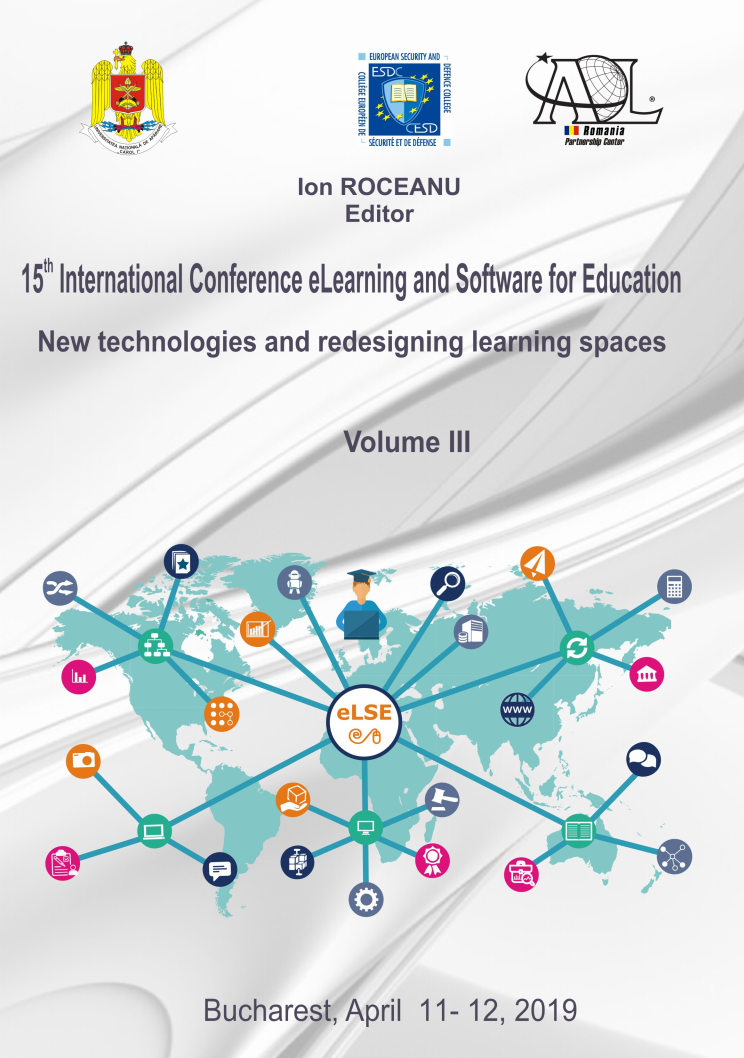Implement Online Laboratories in Electrical and Computer Engineering Education using Virtual Learning Environments
Implement Online Laboratories in Electrical and Computer Engineering Education using Virtual Learning Environments
Author(s): Adrian Adăscăliței, Sebastian Arădoaiei, Marinel TEMNEANU, Ashraf Salah El-Din Zein El-DinSubject(s): Social Sciences, Education, Higher Education
Published by: Carol I National Defence University Publishing House
Keywords: Virtual and Remote Laboratories; Virtual Learning Environment; Blended learning model for engineering education; ePedagogy; Electrical and Computer Engineering Program;
Summary/Abstract: The article presents a review of current e-pedagogical methods of designing study programs for education in the field of electric and computers engineering. Experimental engineering skills and abilities can be developed by using remote labs and simulations. The development of critical thinking of engineer students takes place while students work with virtual resources, and students need to understand what kind of results they get for each experiment. Even if it addresses the same problems - by differentiating the simulation laboratories - it focuses on another field: not the ability to do this, but how you can do it. Online laboratories are also fundamental to the experiments the student performs in the individual study because they are specially designed for distance students who need to gain an introductory knowledge and familiarity with real-life phenomena. These on-line experiments can be carried out in various engineering fields, including Electrical and Computer Engineering. The instructional design model is based on the ADDIE model, which includes the phases of analysis, design, development, implementation, and evaluation. Virtual Learning Environments (VLEs) are used to make online interactions between Students and Teachers. Moodle (Modular Object-Oriented Dynamic Learning Environment) is known as an online course management system (CMS). Learning Process and Content Management Systems (LCMS), in this case, Moodle (an open source software platform for e-learning), provides instructors with the tools to create e-learning or Blended Learning course. The article provides resources and information to help educators, administrators, and decision-makers better apply ITC in engineering education programs. The resources were analyzed by the Faculty of Electrical Engineering ("Gh. Asachi" Technical University of Iași, Romania) in collaboration with Menoufia University, Egypt with extensive experience in integrating ICT in the training programs of engineering teachers.
Journal: Conference proceedings of »eLearning and Software for Education« (eLSE)
- Issue Year: 15/2019
- Issue No: 03
- Page Range: 162-170
- Page Count: 9
- Language: English

